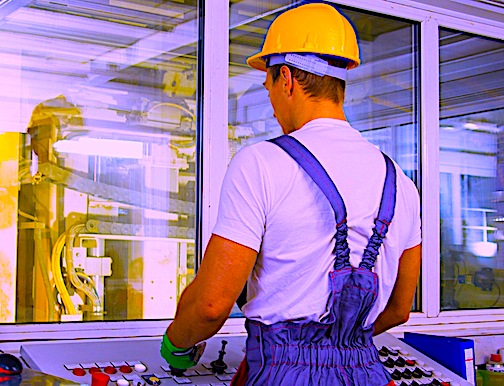Engaging operators in the maintenance of their machines has been met with mixed reviews since its deployment as part of Total Productive Maintenance (TPM) in the 1980s. Proponents believe in it. Opponents don’t want operators touching their machines more than they already do. Luckily, there’s a middle ground. Let’s think in terms of operator “care” rather than “maintenance.” Deployed properly, operators can provide the most efficient and effective form of preventive maintenance in a plant. This column is the first in a series of discussions aimed at sorting out the fatal flaws, critical success factors, and common sense associated with “operator-performed maintenance.”
THE DOWNSIDES
When TPM rolled out in America, we learned about the five “pillars” of TPM. Operators performing routine maintenance on their machines was the second pillar, often called “autonomous maintenance.” Unfortunately, many TPM programs ignored the other pillars and homed in on this new operator role. This proved to be a fatal flaw in many operations for several reasons.
First, “maintenance” is a trigger word in many plants when associated with machine operators. The term is too generalized to dispute or to justify. As I’ve stated many times, “Maintenance is the least-defined of all industrial activities.” It can cover routine cleaning to major overhauls and a host of activities in between. Until maintenance tasks for operators to perform are clearly defined, there should be no debate.
Second, there are often clear lines of demarcation among job roles in organizations with labor-union contracts, work agreements, and/or job descriptions. Thus, there are usually complex issues when an operator is perceived to be assuming the responsibilities of another job classification.
Third, the term “autonomous,” when associated with operator-performed maintenance, is truly misleading. “Autonomous” means “independent and having the power to make your own decisions.” This is NOT what we should strive for. We don’t want operators performing work on machines that’s independent of the bigger maintenance routine, not part of equipment history, or done at their own discretion. (More on this in Part II.)
THE UPSIDES
Having operators involved in equipment care has huge, really huge benefits for an organization. And there are ways to realize these benefits and avoid the fatal flaws discussed above.
Operators caring for their equipment implies a sense of OWNERSHIP that should be encouraged. We would rather have operators treat their machines as their personal cars or trucks, rather than rental vehicles. Sure, some people change their own oil, rotate tires, replace brake pads, may even perform computer diagnostics. But that’s not what we intend with operator care. Think more about paying attention to squeaks, rattles, and leaks. Looking at the tires to notice any unusual wear or low pressure. Washing a car and vacuuming the interior. These are routine vehicle ownership tasks that we don’t perform on rentals.
Operator care should be focused on eliminating pesky trouble calls for maintenance work by having the operators perform simple proactive/preventive interventions. Example: “Keep the sensor cleaned off with this little brush every 30 minutes to prevent misfeeds and major jams.” After all, whether discussing personal vehicles or plant equipment, here’s a simple fact: “Cleaning IS inspecting.” Beyond the benefits of cleaning, wiping down easily accessed parts means that wear-causing or debris-accumulating components are being touched, and loose, broken, or missing ones can be easily spotted.
The biggest benefits? Operators can be trained to be the eyes, ears, and nose of maintenance, meaning they can bring emerging problems to the attention of the maintainers before failure occurs. And more skilled-maintenance-technician hours are available by eliminating those pesky trouble calls. Now, stay tuned for “Part II: Focus on Results.”TRR
ABOUT THE AUTHOR
Bob Williamson is a long-time contributor to the people-side of the world-class-maintenance and manufacturing body of knowledge across dozens of industry types. His background in maintenance, machine and tool design, and teaching has positioned his work with over 500 companies and plants, facilities, and equipment-oriented organizations. Contact him directly at 512-800-6031 or bwilliamson@theramreview.com.
Tags: reliability, availability, maintenance, RAM, operator care, maintenance management, plant operations



